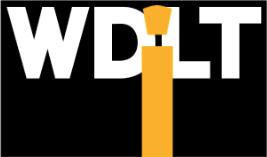Information only becomes knowledge through a social process!
As a part of my coursework this week, I was directed to a paper written by Michael Fullan (pictured), a paper which I first read about 18 months ago. It is titled "Principals as Leaders in a Culture of Change". Click on it and have a good read (14 pages - you'll be done in 30 minutes!)
At that time, when I first read it, I was in the process of preparing to move to my current school, and my context (being a Director of Technology) was somewhat removed from the topic. Now, some 18 months later (as a K-12 Principal) I find myself firmly embedded within the context the paper speaks to, and as we all find when the context is immediately applicable, I was "listening" more intently as I read.
"Information only becomes knowledge through a social process" is the one sentence that I found myself "listening" to.
I considered it in the context of teachers all working together on assessment practices. I considered it in the context of talking to parents about our assessment practices in our class. And I considered it in the context of teachers guiding students in turning information into knowledge.
Since spending almost a week discussing important instructional and educational matters during our pre-planning days, I have been reflecting on how valuable it was to spend dedicated time discussing these topics. Sharing thoughts and opinions on assessment, discipline, and meeting norms was an extremely valuable way for each of us to begin/continue the process of turning information into knowledge. It was an extremely valuable way for us to build our relationships, and it was an extremely valuable opportunity for us to engage in practicing, studying, and refining the craft of teaching, something Fullan suggests a Principal should be constantly reminding teachers is critical!
So, as you reflect on the value of professional conversations you’ve been involved in for yourself as a learner, take a moment to reflect on how often you build similar opportunities for discussion into your classes.
The social process builds relationships, conveys a high degree of respect to the students, and at its most basic level is a crucial opportunity for your students to turn the information (that you may have given them) into knowledge they have generated themselves.
Social processes are critical for learning!

